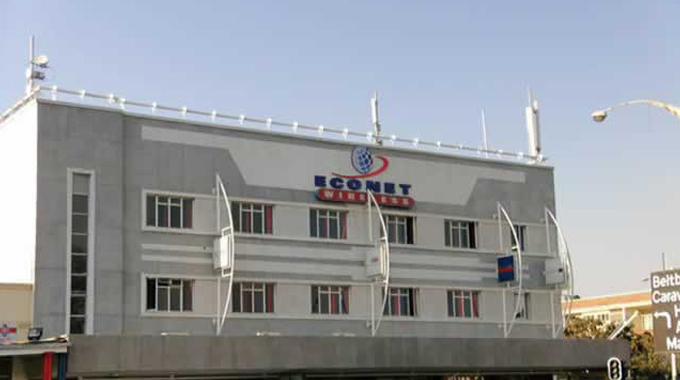Firms queue for a month to access foreign currency

Angeline Mpofu, Business Correspondent
ZIMBABWE continues to suffer crippling cash shortages, which have put the manufacturing industry in a dilemma as companies are forced to queue for foreign exchange allocation at their respective banks to facilitate foreign payments. The delays in accessing forex to import key raw materials are threatening the viability of most firms, who are already operating below capacity, experts say. Reporter, Angeline Mpofu (AM), met Mealie Brand managing director and Confederation of Zimbabwe Industries (CZI) Matabeleland Chapter president, Mr Walter Chigwada (WC), to discuss the foreign exchange shortage problem and how it has affected the manufacturing sector in Bulawayo.
Below are extracts of the interview
AM: How has the shortage of foreign currency affected imports of raw materials in the country?
WC: Certainly manufacturing industry has been affected the most by shortage of foreign currency in the country because most of these companies rely on imports for raw materials. Manufacturing companies are therefore forced to apply for foreign currency from the bank. The challenge now is there are guidelines that have been set up by the central bank to provide the much needed foreign currency for imports.
The bank has a provision that when a company exports it surrenders 50 percent of the foreign currency to the bank. This entails that when you later come back to apply for foreign currency you are given first preference at the expense of other companies. Now the biggest challenge is for those companies that rely on imported raw materials while they do not export hence they are not given first preference in acquiring foreign currency from the bank. This forces companies to follow the RBZ protocol channel of prioritisation where they can even wait for a month to access foreign currency while medical and food industries are given first priority. This has forced some companies to opt for credit facilities, which have also been strained because they fail to pay up on time.
AM: You are suggesting that the major challenge is queuing for foreign currency. Is there a fixed period of time that industries are forced to wait until they get foreign currency from the central bank?
WC: It depends with your type of company. The RBZ has a priority protocol that it follows. Companies such as those producing medicine and food products and those that produce products that are not produced in the country such as power and fuel are given top priority. This can take you up to a month while you need the foreign currency as much as those companies given first preference.
This situation has also strained credit relations between local companies and their foreign suppliers because they end up delaying payment for products that would have been acquired on credit. This is detrimental because next time they try to get raw materials on credit they are denied and they are forced to pay cash. The impact now is that all credit lines are closing.
AM: Are there companies that have actually closed down due to the shortage of raw materials?
WC: No, there are no companies that have closed down. The manufacturing industry is carrying on but struggling. They are managing somehow but I cannot say there are companies that have actually closed down now. Textile and Saunders industries in Bulawayo have suffered the most with some cutting down and threatened by closure.
AM: ZIMPLOW is also a significant company in the manufacturing industry, how are you surviving in this economic situation where there is shortage of foreign currency?
WC: We are generally affected just like any other manufacturing industry, once in a while we do exports and have some foreign currency coming in but we are also forced to queue for foreign currency to import all our raw materials.
AM: As an industry, are you satisfied with what the Government has done to assist or revive Bulawayo manufacturing industry?
WC: The Government has been trying to assist these companies through the implementation of statutory instruments and policies. Initially the manufacturing industry was forced to compete with Chinese and other foreign companies who exported their goods into the country. So, Statutory Instrument 64 was implemented to reduce import activity into the country, which strived at the expense of local goods. The initiative had a positive impact because when CZI carried out a survey to measure the effectiveness of the instrument and they projected that capacity utilisation increased from 34 percent to 47 percents.
The command agriculture scheme also means that we are able to grow our own maize and supply companies such as Ingwebu Breweries and National Foods who utilise a lot of maize in their production. This means that these companies are no longer forced to queue for foreign currency to import maize into the country as they can rely on local supplies.
There is also an Act of Parliament that has been put in place to demarcate Special Economic Zones in the country. Bulawayo and Victoria Falls have been selected to revive the industry and promote manufacturing industry. In Bulawayo, a place close to Mpilo Hospital was demarcated for industrial activity considering that the city has always been significant in the manufacturing sector throughout the country. Generally, the Government is trying to solve the situation in the country and these measures have either a short, medium or long term impact.
AM: What is your outlook or projections for year 2017 in terms of industry viability and the impact of these Statutory Instruments?
WC: The Statutory Instrument 64 has had an immediate impact on the industry because it eventually led to the opening up of markets and we are optimist for the year. With command agriculture, which is a medium to long term initiative, it involves planning and needs time to be evaluated. For example, with the production of maize, we are waiting for the harvesting season to see if the harvest will ease importation of maize into the country. So the results of the initiative will mature in April or May, then we can measure its effectiveness. The Special Economic Zones is a long term initiative because it involves planning and implementation over a considerable long period of time. It requires marketing so that we can attract foreign direct investment which will contribute towards the revival of the manufacturing industry.
Generally, the companies that are still manufacturing are very upbeat. The major challenge now is the foreign currency that we spoke about but due to the instruments and policies that are in place and the bumper harvest ahead of us the situation is promising.
AM: How about initiatives or policies put in place by the Reserve Bank of Zimbabwe? Do these assist the manufacturing industry?
WC: The RBZ has also come up with the neutral account in trying to curb challenges faced by companies that are struggling.
The $70 million facility (in the 2017 monetary policy) is there to make sure that there is availability of foreign currency for the manufacturing industry to import raw materials.
AM: What do you think will be the impact of anticipated good yields on the fortunes of manufacturing firms? Will this bring any change to your challenges?
WC: Certainly we are looking forward to a bumper harvest this year. What it means is that all that money that was going to be used to import maize like we did last year when we faced a drought is going to be saved. The tobacco season is a major generator of foreign currency because foreign currency inflows will increase into the country. We expect that the import bill will go down and exports will increase. So, the year 2017 will experience an increase in the availability of foreign currency and ease the situation for the economy as a whole.
AM: What are your recommendations in terms of addressing the foreign exchange shortage issue?
WC: The idea is to make sure that companies increase exports so that they draw foreign currency into the country. Companies can capitalise on the five percent (bond notes) incentive awarded by RBZ on every export trade. By the time we fully utilise the $200 million facility our exports would have increased by $6 billion then the shortage of foreign currency would be eased. The projection is that companies will not have to scramble for the limited amount that comes into the country.
AM: Is there anything that you would like to add in a nutshell on the cash crisis and perhaps how the economy could be revived?
WC: The introduction of bond notes and plastic money and the Afrexim Bank initiative have eased the cash shortages and queues in our local banks. For companies that are into trading, customers can now come in to purchase goods using bond notes or plastic money. So, on that side, really the Government has tried to come in and assist and it has brought a positive impact.












Comments